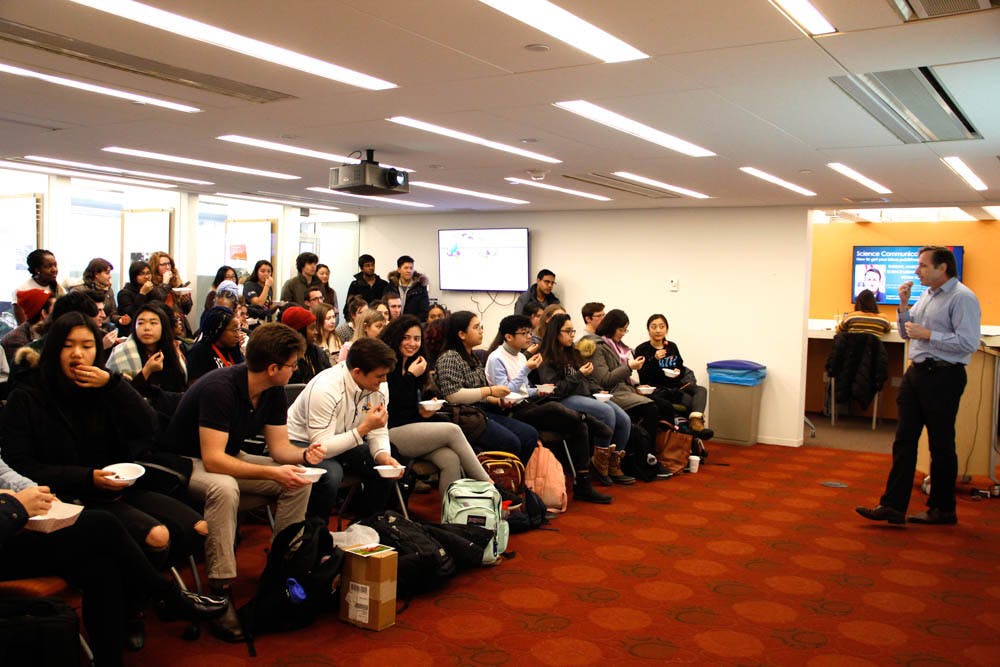Attendees at the event titled “Tasteberries” were in for a sweet treat Tuesday afternoon when they had the opportunity to trick their perception of sweetness by eating “miracle berries.”
The event, held at the Science Center, was hosted by Senior Lecturer in Neuroscience John Stein.
The berries get their effect from a protein called miraculin, Stein said. “The miraculin protein tricks your sweet receptors into thinking that sourness is actually sweetness,” he said. “If you wanted to appreciate lemonade, you could just take lemon juice, put it in water with no sugar or sweetener, and then take this miracle fruit … and for the next hour it would taste like lemonade.”
Before participants had the chance to experience the effect for themselves, Stein gave them an overview of the science behind taste. Taste buds have receptors that allow you to perceive specific tastes like sweetness, sourness and bitterness, and “the more you activate the sweet receptor, the more sweetness you will experience,” he said.
Miraculin binds to free hydrogen ions from acidic foods, which “activates the sweet receptors 10 times more than sugar does,” Stein said at the event. “If you take a lemon that has some acid in it, … those free hydrogen ions will bind to miraculin, overstimulate the sweet receptors, and you’ll get a heightened perception of sweetness in the presence of acid,” he said.
“(Miraculin) is going to interact with receptors that are part of our nervous system and change their responsiveness,” he said. “It’s safe, it’s not addictive, it’s not habit forming.”
Nutritional applications of the berry have been proposed, such as using it to help people with carbohydrate-restricted diets, but the short shelf life of the protein makes them difficult to implement, Stein said. “When it’s wrapped up in the fruit, or when it’s freeze-dried into pellets, it has a decent shelf life. But then once you put it on your tongue, it’s only good for maybe an hour or so,” he said.
At the event, participants each received one miracle berry and then were given the opportunity to taste lemons, limes, vinegar, hot sauce and sour cream to test the effect of the berry on their perception of taste.
Eli Zucker ’22 decided to attend the event because he had heard about the berries before, and “it seemed like a really cool effect and experience,” he said. “The berries tasted just like normal berries. They weren’t super sweet.”
Even though miraculin binds to the sweetness receptor, it doesn’t directly activate the receptor. Though there may be some sucrose in the fruit, “it’s not going to be overly sweet,” Stein said.
Xavi Loinaz ’21 said the berries tasted like cherries. It wasn’t until he tasted other foods that the effect of the berry became apparent. “Sour cream tasted kind of creamy, sweet and sour all at the same time. I liked it a lot,” he said.
“Eating a lemon tasted super sweet, and limes tasted good too. It tasted like I was taking a (drink) of lemonade,” Zucker said.
“Sometimes this is referred to as ‘taste tripping’, and it is a trip of sorts,” Stein said.





